The Out of Town Advantage: A Mishpacha Symposium

Candid takes from people who made the move
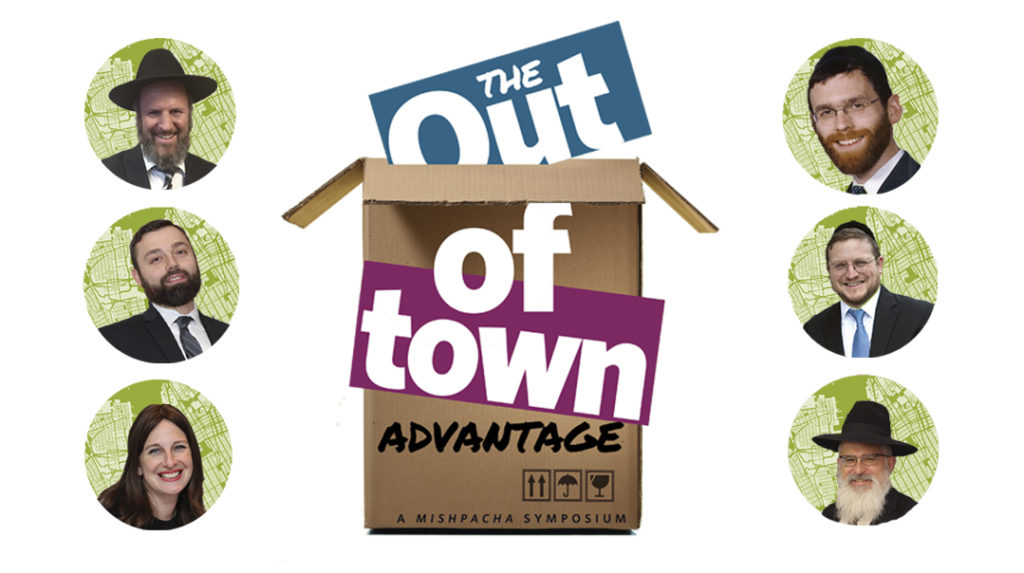
Project coordinator: Gedalia Guttentag
I
n the Jewish world, where the term “out of town” means anywhere outside the Tristate area, an “out of towner” is someone who, while working a little harder with limited resources, also knows what it means to be an integral part of a small community. But what are the trade-offs? The spiritual and physical inconveniences and benefits of living far from the centers of Jewish life? Mishpacha asked several prominent “out of towners” to share the challenges and the blessings of a life-choice that has both individual and family ramifications, addressing these and other issues:
What kind of adjustment did you or your spouse experience, and when did you finally feel like it could work for you?
Do your children resent being “out-of-towners” when they go off to camp, yeshivah, or seminary?
How do you find spiritual role models for yourself and your children?
If several hundred families would move to your town from Brooklyn, would you consider the influx a blessing or a challenge?
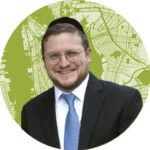
Better than Par
Rabbi Baruch Levine, Waterbury, Connecticut
D
on’t move to Waterbury if you’re expecting an assortment of 40 dips to choose from for Shabbos. Our store carries around four, but that’s fine. It’s better than when we first moved, when we actually had to have our gefilte fish with just Hellman’s mayonnaise and non-heimishe chrein (horseradish)… such suffering.
Truth be told, on my many trips back and forth from New York and Lakewood, I would often find myself on a Thursday night in one of the new-age boutique kosher supermarkets buying Shabbos items to bring back home to my family in Waterbury — I didn’t want them to feel deprived. Until on one such trip something in me moved. I walked into one of these supermarkets with a different pair of eyes. I found myself confronted with way too many choices, and it was just giving me a big headache — and so I challenged myself. Why am I doing this? We are perfectly happy with the store and selection that we have where we live. We will spend less money and consume less calories. The next day, I walked into Waterbury Kosher World where I felt at home and bought what we needed for our oneg Shabbos. We survived that Shabbos — and every one since — fully intact.
Growing up in Toronto, I would spend my midwinter breaks visiting New York. My family would stay at the Park House hotel on 12th Avenue in Boro Park and spent the day gallivanting up and down 13th Avenue — from Paskesz to Bencraft and everything in between (breakfast every day was at the Donut Man). We had an absolute blast — but by the time it came for us to go back home, we were delighted to escape the honking and double parking of Boro Park. Of course, by the time the next year’s midwinter rolled around, we needed that “in-town” fix, so we returned to the Park House and hit those streets again! Those were some of the best vacations we had. The following summer in camp, as I was hanging out with my in-town friends, I told them, “You know something — being a New Yorker is nice, but the worst part about living in New York is that you can never visit New York!” (Today, you can probably replace New York with Lakewood.)
Well, that’s me. But do my children resent being the “out of towners” when they go off to camp or yeshivah? I would say no to that too. They feel that they’re needed, counted on, relied upon, and that they are building something special. Whether it’s to head school plays or organize a mishmar program, there’s room out of town for everyone who’s willing to take achrayus and lead… and yes, even children. My children have many in-town friends whom they’ve met at camp over the summers, and there’s a lot that can be gained from the in-towner/out-of-towner friendship. A girl coming from a class of nine who makes friends with a girl who’s in a class where she’s one of 90 has different experiences that they can share, discuss, and laugh about.
Being a rebbi at the Yeshiva K’tana also allows me to observe how the boys in our cheder progress academically. Years back, after we had graduated our first few eighth grade boys and sent them to various yeshivos, we were nervous how they would fare on the big stage. After all, these boys didn’t have the specialized chinuch that other in-town boys have. They were in heterogeneous classes where you had eight—ten boys all on different levels of skills, frumkeit, and innate talent. After graduating three such classes, I had the opportunity to meet with Rav Ausband from Riverdale where some of our YKW graduates had gone to, and I asked him, “Nu? How are the Waterbury boys doing? Are they up to par?” He looked at me with a big smile and said, “Up to par? Better than par! Send me more!”
Baruch Levine, born and raised in Toronto, is a popular singer and composer. He has been a rebbi in the Yeshivah K’tana of Waterbury since 2005.
It’s About the Achrayus
Rabbi Avrohom Weinrib, Cincinnati, Ohio
I
grew up in Flatbush. One of the multitudes, raised in a society whose dominating theme was Orthodox Jewry. It was hard to miss a minyan in those days, and, unless one was fleishigs, 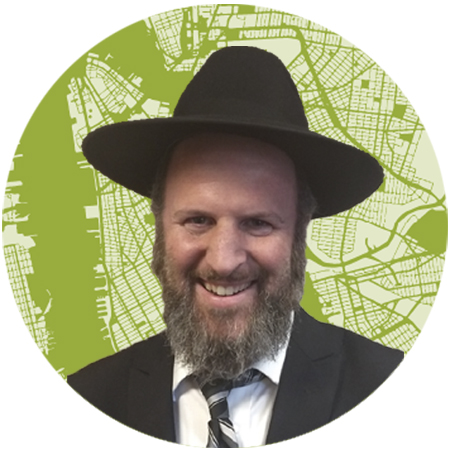
 https://mishpacha.com/wp-content/uploads/2019/07/Grossman.jpgpizza was seldom unavailable. My wife is from Monsey, a similar cultural dynamic.
https://mishpacha.com/wp-content/uploads/2019/07/Grossman.jpgpizza was seldom unavailable. My wife is from Monsey, a similar cultural dynamic.
Today, we live in Cincinnati. By now, we’re used to the reaction: Cincinnati?! What? How? Why? Please don’t be afraid to ask — we love these questions. Even more, we love the answer.
No, it’s not the slower pace of life, although I do love that I can space out after a light turns green, and all the cars behind me will wait for me to finish my thoughts.
It’s not the fact that I never need to daven for a parking space, although I appreciate not having to circle the block looking for one.
It isn’t the cost of living, although it’s sure nice to have a mortgage that is lower than many “in towners” pay for utilities.
It isn’t the vouchers for private school, although I sure appreciate the government paying half our tuition.
It isn’t the sense of community, although there is nothing like being a part of a “family” where each person is cherished and valued.
It isn’t about the smaller classes, although the special attention each of our children receives is priceless.
It’s not about the diversity, although it’s so nice to see achdus as much more than just a color-war theme.
It’s not about the lack of focus on materialism, although it’s so beautiful to raise our children in a place where the priorities are steeped in true Torah values.
And no, not everything is picture perfect. I had to get used to actually stopping at a stop sign instead of rolling through it. There isn’t a late morning Shacharis, or multiple eateries, or Jewish clothing stores. And my children will be exposed to people and ideas earlier in their life than those in a more insular community.
So, when asked why we live in Cincinnati, we skip the litany of advantages to out-of-town living. Instead, we share a story.
I was the first grandson born to my paternal grandparents, both of whom survived the Holocaust. They met and married in a DP camp in Germany. In defiance of the despairing darkness, they set out to build a future, determined that it be bright and brilliant. As their first grandson, my birth was essentially the fulfillment of their life’s wildest dream. One can only imagine the emotions they felt upon receiving the phone call from my father. “It’s a boy! We’re making a shalom zachar this Shabbos!”
But my grandfather Reb Chaim Weinrib’s response to the happy tidings was startling. “I won’t be able to come for the shalom zachar,” said Zeidy. “This Shabbos, in our shul in Hartford, Connecticut, there is a bar mitzvah, and I took responsibility for the kashrus. If I’m not there, the kashrus level won’t be the same. Zug mein einekel az der zeide iz a baal achrayus — tell my grandchild that his grandfather is a man who takes his responsibilities seriously.”
Zeidy may have missed my shalom zachar, but instead conveyed a message of lifelong significance. Nothing trumps the importance of one’s responsibilities.
Out-of-town living is about responsibility to community, where every person can contribute and make an incredible difference. If someone wants to know who makes things happen in any given community, it’s usually a vague “They do.” In communities like ours, every person can be the “They.” People take responsibility and are astounded by what it does for them.
It’s about responsibility to family, where children are not raised on autopilot but where parenting matters. The diverseness of these communities forces parents to take their jobs more seriously and become more involved parents. And at the same time, the less-pressurized lifestyle allows for more time and head space to spend and bond with family.
But most of all, it’s about responsibility to yourself. It’s about developing as an individual, bringing out your special uniqueness. When one is no longer just another member of the community but is given opportunities to shine, it brings out incredible potential and strengths people don’t even know they have.
Why Cincinnati? Because, as a mere infant, I got a lesson in what it means to be a “baal achrayus.” And what better place to live than in a community where everyone has the opportunity to achieve that same sacred title?
Brooklyn-born Rabbi Avrohom Weinrib has been the rav of Congregation Zichron Eliezer in Cincinnati for the past seven years, a position he says was “love at first sight.” Before that, he led a start-up congregation in Chicago that grew from 15 to 65 families during his tenure.
I Don’t Feel So Far
Ruchi Koval, Cleveland, Ohio
L
et’s start with the benefits. I like the lower level of “sameness” — and therefore judgment — that exists “out of town,” although I dislike the term (the assumption being that there is one 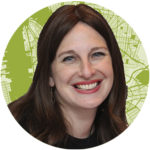
Still, people often do run to Lakewood, not only to shop, but even to marry off their children, even if both parties are from Cleveland or another Midwest locale. This affects our community in multiple ways. The caterers, hairdressers, makeup artists, and photographers suffer; people have far fewer friends at their simchahs; our teachers are constantly running to Lakewood for weddings while our kids are left with subs; and we rarely have a wedding to celebrate. Instead, we all come together — for funerals. Funerals are still being held here in Cleveland, but the weddings have fled. That’s not good for a community at all. Initiatives are in place to reverse this, but cost plays a huge role in the simchah drain. People even take bar mitzvahs to New York or Lakewood if most of their relatives are there.
There’s an assumption that everyone moves here from some “in-town” locale. We didn’t. My husband and I both grew up here. Our kids love being “out of towners” although they do resent the somewhat snobby implication of the term. They feel proud of their diversity and broad-mindedness and sensitivity to achdus. I am sorry to say they don’t like to go to “East-Coast-heavy” camps or seminaries because they don’t feel understood. I know when I was young, I did not appreciate being a minority when the New Yorkers seemed to have all kinds of unspoken rules about which skirts were acceptable and which hairstyles were passable — rules that we didn’t know or care about. There was definitely a cultural divide, which admittedly caused some hurt feelings.
If 300 couples would move here from any one location, it would upset the balance of the community. I think what makes our community work is that there is such a nice mix from across the spectrum. The growth should be organic and gradual in order to keep this mix vibrant. When I go to Lakewood every summer to visit my parents who now live there, I am overwhelmed by the density, traffic, and uniformity — it seems to me that everyone dresses the same. (With my colorful clothes and tichels, I feel like I stick out like a sore thumb.) I have to train myself to see all the good that exists in a densely populated Jewish community.
But don’t come here if you are expecting fancy restaurants, a constant chalav Yisrael supply, cheap weddings, or uniformity. We are not always fashionable, we speak with all kinds of accents, nothing is open late, and we have no kosher fast food. But when East Coasters move here, after a while, they begin to love it too.
People sometimes ask how we find spiritual role models for ourselves and our children. But we have incredible, holy, beautiful role models here, accessible and available personally and communally. Quality and quantity are not necessarily correlated. Come visit Cleveland and see for yourself.
Ruchi Koval is the co-founder and associate director of Congregation JFX, a kiruv community in Cleveland. She is a certified parenting coach, educator, author, musician, and motivational speaker. Her first book, Conversations with G-d, was released in 2016.
It Becomes Your Norm
Rabbi Shlomo Landau, East Brunswick, New Jersey
I
work as the director of Torah Links of Middlesex County, NJ, part of the outreach arm of BMG. My family’s life in East Brunswick, though, is definitely not typical of suburbia. 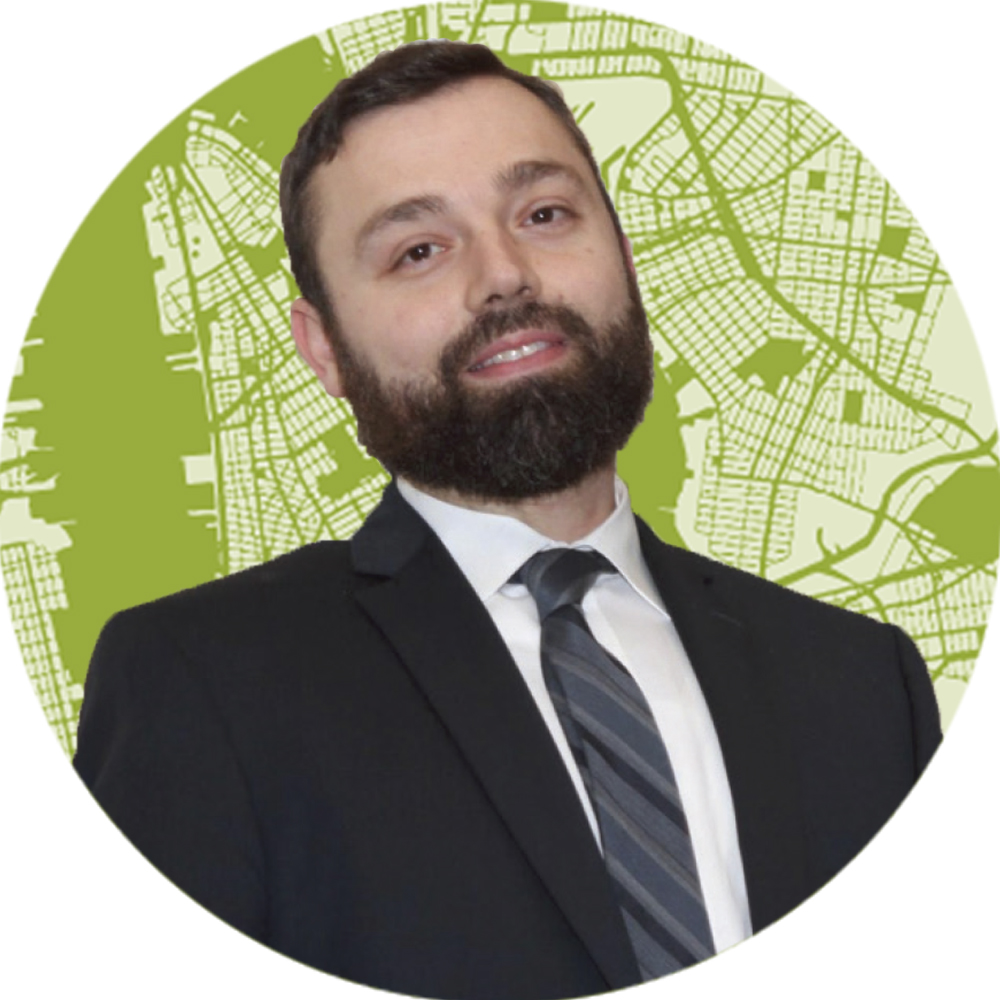
Take schooling, for example. Initially, our children commuted to school in Lakewood, as we felt that daily interaction in a bustling makom Torah was irreplaceable. Eventually, though, we moved our children to a local yeshivah day school with excellent chinuch and mechanchim. On the one hand, our children have the opportunity to interact with all stripes and types that are the fiber of Klal Yisrael. They have come to realize that no single group “has it all,” and that we can learn so many valuable life lessons from everyone, even if they are not exactly like us. But on the other hand, we have a deliberately insular home, and our children have classmates who are accepting of ideas and behaviors that we do not wish to bring into our lives. This certainly complicates our children’s upbringing at times.
I remember a conversation we had with Rabbi Nate Segal almost 20 years ago. He was talking to us about the possibility of moving out of town to be involved in kiruv, and he turned to us and asked, “Are you sure that you can handle living out of town?”
“I think so,” I said.
“All right,” said Rabbi Segal, “let me ask you a few questions. Would you move to a town that has no kosher pizza shop? Would you move to a town that has no sheitelmacher? Would you move to a town that has no chalav Yisrael milk?” The questions went on and on. Well, we did move to a town that had no kosher pizza shop. (Now it does.) There is still no sheitelmacher, but there is chalav Yisrael milk… at twice the market price. (And it’s also yoshon!)
Initially, the entire family had to endure a huge adjustment period, but like everything in life, eventually routine sets in and the life you live becomes your norm. Many of the conveniences that we had become accustomed to were gone, but at the same time, the kiruv experiences that our family has been a part of, and the feeling of making a real difference and not just being one small voice in a crowd, have been amazing.
And then there are the dozens of humorous anecdotes and incidents that have transpired around our Shabbos table and in our home. Here is just one example: We were hosting two very sweet and very secular families for the Friday night seudah. We usually start off the meal by doing parshah questions with the kids. It was parshas Terumah, and to the astonishment of our guests, our six-year-old was giving a vivid overview of the parshah. I was sitting there kvelling as my son described the structure of the Mishkan and the keilim. I smugly said to my son, “Why don’t you tell everyone about the most important vessel in the Mishkan, called the Aron. Tell everybody what the Aron was.” Without missing a beat, my son replied, “An aron is a plain wooden box that you put a dead body into!”
There is also the issue of our identity: in town, out of town, in/out of towners? My kids always joke that they should carry around a small audio recording that answers all of the questions that they have been asked hundreds of times. “Yes, East Brunswick. No, it is not near Lakewood. My father runs a kiruv organization. Yes, there is one kosher pizza place in our town. No, there are not many yeshivish families….” All in all, I think the in-town kids are intrigued and even moved by the life that we live and the mission to which we are dedicated.
Living in a town that is very much at the crossroads of New York and New Jersey, we often meet Brooklynites who are passing through and need to chap a minyan. More than once, as Shacharis has been about to start, I have been approached by a visiting Brooklynite inquiring as to where he might find the “kava tzimmer/coffee room,” not imagining for even a moment that a shul might not necessarily have a dedicated coffee room.
As a family, we often dream out loud about what life would be like in sleepy East Brunswick if a mass migration from Brooklyn or Lakewood would all of a sudden move in. It would certainly come with a whole slew of challenges, as a certain level of education would be critical to ensure that the efforts we have expended in creating a kiddush Hashem continue, but it would also be a dream come true as the levels of Torah, tefillah, and chesed would skyrocket overnight. Oh, and it hurts just to think about the serious real estate inflation!
W hen we moved out of town, we made a kaballah that we would spend the summer months in a yeshivish environment (even if we could not afford it), in order for our family to be exposed to serious bnei Torah. Be it a bungalow colony or, more recently, as part of the staff of a sleepaway camp, this commitment has been a critical part of our lives.
Lastly, being a kiruv rabbi automatically brings with it a vast number of sh’eilos, both halachic and hashkafic, necessitating a strong connection with poskim and gedolei Torah. This keeps us closely connected to the alter heim not just because we want to, but because our allegiance to halachah demands it.
Here is what I would tell any of the families contemplating a move: Don’t come here if you are expecting all of the amenities of a thriving in-town Jewish community or expectations for another Brooklyn or Lakewood. Do come here if you have true ahavas Yisrael and want to make a real difference.
Rabbi Shlomo Landau is the director of Torah Links of Middlesex County, a family outreach and education organization in East Brunswick, NJ. He is also a teen educator, currently on staff at the Rae Kushner Yeshiva High School in Livingston, NJ.
A Simpler Life
Yaakov Rosenblatt, Dallas, Texas
M
y wife and I left BMG of Lakewood to join the Dallas Kollel in February 2000. We left to change the world (definitely a work in progress), but there was something personal 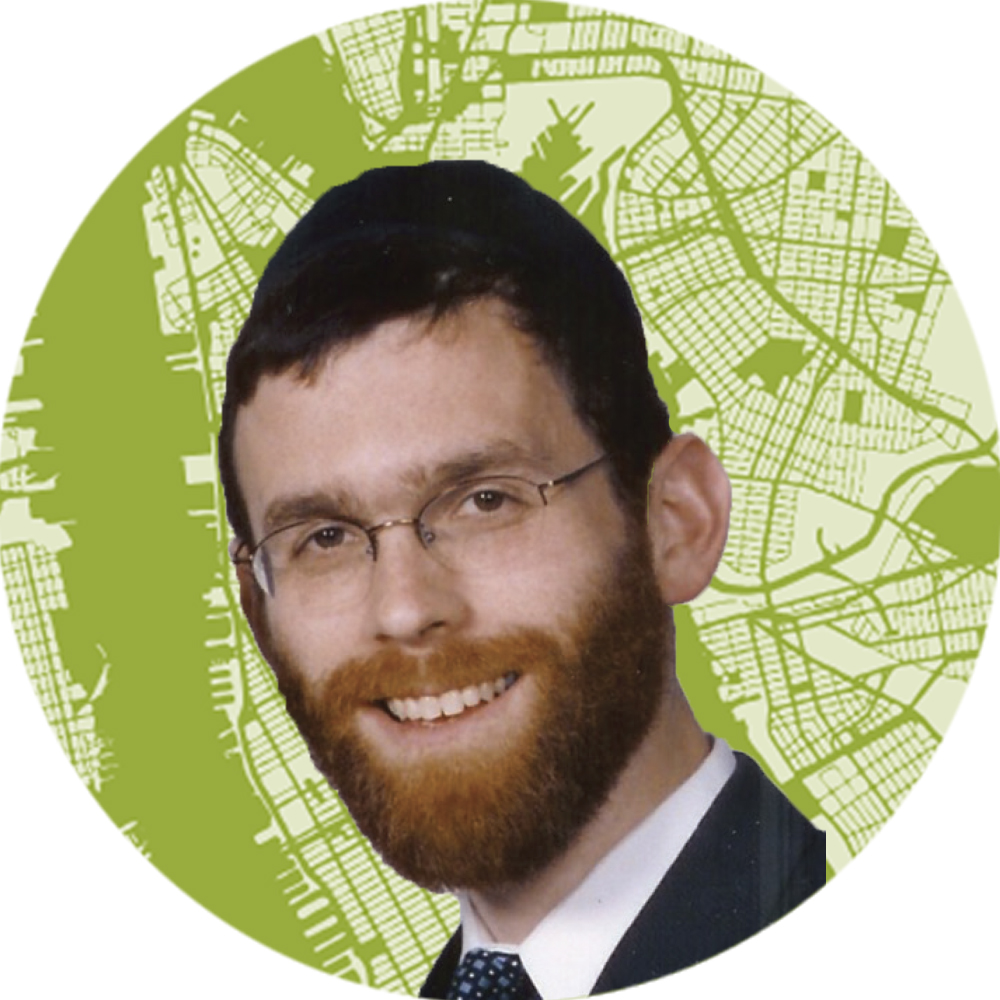
Today, having lived in Dallas for almost two decades, the results of that decision are permanent. Our children are out of towners. When we go back to New York, we feel out of sync. When we talk to our friends of old, there is often a cultural gap.
Our Yiddishkeit is rich yet uncomplicated. Hashem and His Torah are the essence of life, and Klal Yisrael and Eretz Yisrael are paramount. Passion runs deep, yet there is very little noise. Despite being raised in boisterous Brooklyn, my soul is drawn to this quiet dignity. My wife and I wouldn’t leave here for anything. Unless, that is, our children move away, which is a very real possibility and concern. What stills our soul may not quench their thirst.
What I appreciate most about living in Dallas is our kehillah. Our children were accepted to the local frum school — of course they were. Everyone is accepted. We look with puzzlement at the nuance-defined schools back East. Here, we are less focused on distinctions. So long as we’re headed in the same direction, faster or slower, directly or circuitously, where one is standing today makes little difference. It’s refreshing, even after 20 years, to see a very eclectic set of parents at school events. It gives one a genuine sense of Klal Yisrael. There will be children in our children’s classes whose observance level is weaker than ours. There will be children in our children’s class who are exposed to things that our children are not. We raise our children knowing that this will happen, and we can generally draw boundaries that are effective.
I love the fact that in our community externals mean little. Wearing a new tan suit with shiny brown wingtips is not a sign of being anti-establishment or “doing your own thing.” It’s a sign of Macy’s Memorial Day sale. When a kid misplaces his shoes on Shabbos, he can still come to shul — with tzitzis, peyos, white shirt, and Crocs. Nothing happens. No one notices.
The out-of-town culture is minimalistic. Smart people don’t wear their superior intelligence on furrowed brows, and rich people don’t project being wealthy. People are friendly across intellectual and financial lines, drawing close instead as a result of shared social ties. And social is largely the community — the shul, the school, the kollel. Our children belong to a small group of people living a common spiritual mission, and that forms their identity.
Bar mitzvah boys lein one, two, or three aliyos, but not more, shelo levayesh mi she’ ein lo. And at the same time, most boys make a siyum on a seder Mishnayos, some on Shishah Sidrei Mishnah. We are black-hat with a feather. After 20 years, I appreciate the feather.
Are there sacrifices to being out of town? Surely. One of the biggest challenges is getting our boys ready to attend New York-style yeshivos. Many attend out-of-town yeshivos geared toward out of towners, not a loss but an adjustment. We also attend few family simchahs, which is painful. It creates a distance between our children and their first cousins which may be impossible to undo. There is a dearth of older people who can connect us to generations past, something we didn’t lack in Flatbush. There’s one older woman in our community who is called “Savta” by dozens of families; she fills a very real void.
Looking back, had we known what we know today, we’d have done it all over again. For sure. A positive, minimalistic, G-d-centered, community-focused childhood is the best gift we can ever hope to give our children.
The author of two books, Yaakov Rosenblatt is a rabbi and meat manufacturer in Dallas, Texas.
Risks and Rewards
Rabbi Hillel Grossman, Woodridge, New York
"I
n a place where there are no men, strive to be a man,” the Mishna tells us. Reb Chaim Volozhin explains that when there are fewer external influences — which is the case 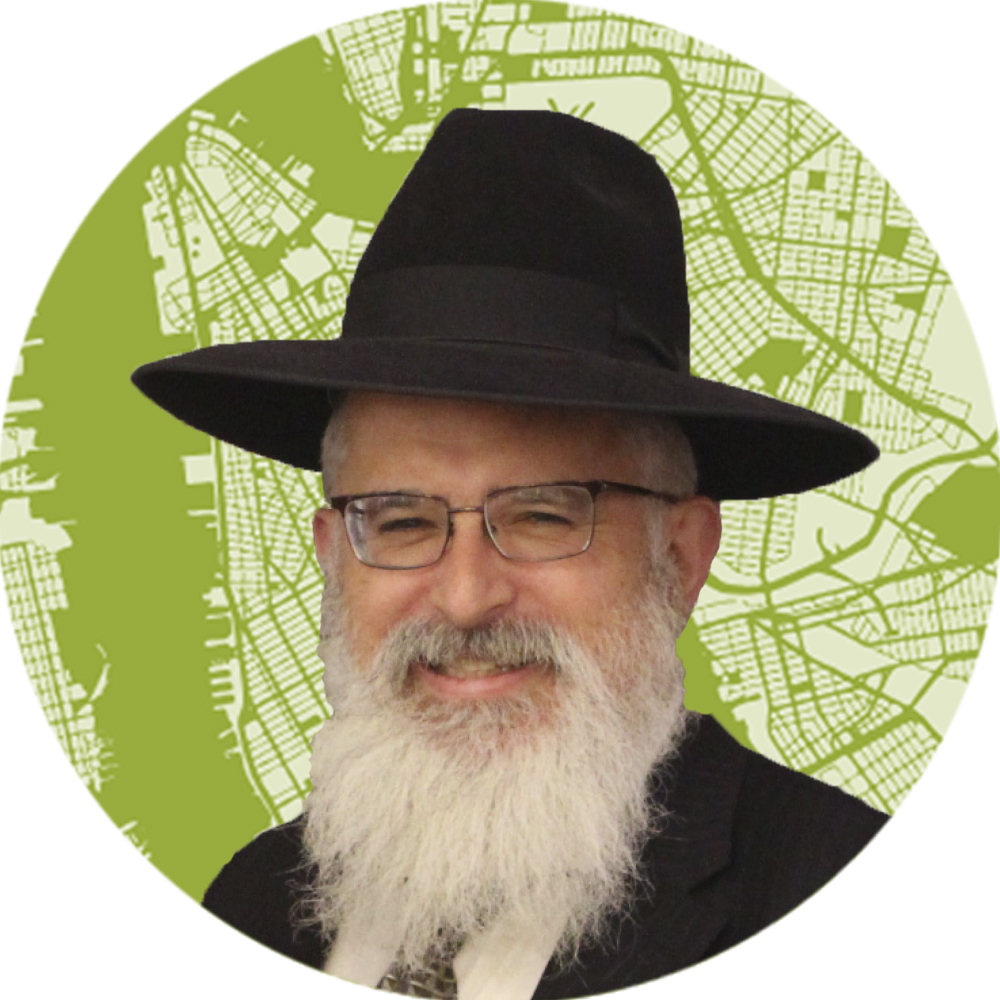
 of town, where less people surround us — then there is so much more room for authentic internal growth.
of town, where less people surround us — then there is so much more room for authentic internal growth.
Moving out of town provides a real opportunity for that kind of spiritual growth. Simply because there are less members in the community, each resident has more of an ability to forge a very strong relationship with a rav. They also have more of an opportunity to connect with others, utilizing whatever gift or quality they bring to the table. But most importantly, the out-of-town lifestyle makes it so much easier to come in contact with our own selves and thereby connect with Hakadosh Baruch Hu on a much deeper level.
That said, along with the growth opportunities, out-of-town living carries real spiritual risks. With less yeshivos, less batei knesses, less shtiblach in the area, there is also less of that energy for Yiddishkeit that characterizes strong frum population centers. If you’re not focused or inspired, there’s a real danger of spiritual deterioration, and there are fewer impediments to disengaging from Yiddishkeit. The out-of-town mentality encourages independent thinking, and people accustomed to that mentality may find it all too easy to ease out of and seclude themselves from everything Jewish.
So it’s important, before deciding to explore an out-of-town community, to soul-search and honestly consider: Is this move a way to escape from all the things I don’t like in the city, or is it an opportunity to forge my own strong brand of ruchniyus — a process that can be accomplished with greater ease out of town?
Don’t make the move if you think that out-of-town living is a quick and easy answer to your problems or some form of utopia. Every place has its benefits and deficits, and out of town is no different.
In my experience, our out-of-town children don’t feel like social outcasts. If anything, they enjoy being unique. Their in-town friends do kibitz about their living with cows and horses, but it’s all good-natured and appreciated as such.
The real difficulty comes when children reach high-school age. Not always is the local yeshivah or Bais Yaakov a good fit for your children, and then they have to board in order to attend a suitable school. It’s then that they truly wish they don’t have to be different and wonder why their parents “couldn’t just move somewhere normal where we could all live together and not be separated at such a young age.” There’s no easy answer to that question. Sending away children for chinuch is, in truth, a great sacrifice, not for the faint of heart. The challenge is felt much more keenly when it comes to girls. Even in-town boys go away to learn – after all, we’re instructed “exile yourselves to a place of Torah” – so the out-of-town boys who must board don’t feel as alone as their sisters.
The main benefit of our lifestyle is the lack of exposure to the culture, standards, and mentality of the frum population centers. But this is also its main deficit. Living out of town, we aren’t exposed to all sorts of spiritual diseases that plague the population centers. But we also lack exposure to the rich array of talmidei chachamim and tzaddikim who live there.
Still, living out of town is an opportunity to educate your children according to your mesorah. Since you don’t have easy exposure to a diversity of talmidei chachamim, your children know how important your rosh yeshivah is to you — and by extension, how important a rebbe will be for them. Their chinuch and direction in Yiddishkeit is not diluted by other voices.
Is this lifestyle for everyone? No, it’s not. Does it come with challenges? It definitely does. But if you’re focused on growth and accomplishment, there’s good reason to believe that a move out of town will be a move up.
Rabbi Hillel Grossman is the rabbi of Congregation Ohave Shalom in the Catskills town of Woodridge, New York
Our Children Emerged Stronger
Rebbetzin Marsha Gibber, Providence, Rhode Island
T
hirty-five years ago, when we moved to Providence after living on Yeshiva Lane in Baltimore for ten years, it was like leaving a cocoon and emerging in a world that was a kaleidoscope of different colors that did not seem to match each other. The family had to adjust to a different social and educational climate, as well as small-town living without a kosher butcher, bakery, or other so-called amenities. The day school was designed to meet the needs of a very heterogeneous population. The more Orthodox families whose children attended the school had different standards of observance.
Despite the challenges — or perhaps because of them — our children emerged very strong in their convictions and values, coupled with a rare sensitivity and acceptance of others who are different. This can be attributed to a number of factors, not the least of which is that our daily lives very much centered around the beis medrash that my husband founded. We were also careful to maintain strong family ties. Summer camp, yeshivah, and seminary all brought the children into the mainstream, and, for the most part, they had little difficulty fitting in. At home, they navigated the social expectations of their friends without compromising our values.
Of critical importance were the spiritual role models who served to guide us and inspire us before we actually made the move to Providence, and continued to do so once we were there. Our first and most enduring role models were our parents. This was coupled with the Torah guidance and tremendous support of my husband’s roshei yeshivah, from both Philadelphia and Baltimore. In the early years, when I needed reinforcement, I turned to Rebbetzin Yehudis Perlow a”h, the Novominsker Rebbetzin. Throughout the years, we faced significant challenges regarding priorities in our children’s chinuch as well as community issues, and whenever we turned to daas Torah, we were given both direction and chizuk.
I also derive inspiration from members of our community in different ways. Those who are in klei kodesh, chinuch, or members of the community kollel have greatly enriched the level of Torah learning in what remains a diverse community. Throughout the years, the veteran mechanchim in our school have been tirelessly devoted to our children and the community. Some of our yeshivah alumni have settled here, others have joined the community for professional reasons, and there are yet others who have embarked on personal journeys of spiritual growth. Their energy, middos, and positivity serve as motivators. Just recently I attended a kiddush in our shul, when a friend who was about to leave for a three-week trip to Eretz Yisrael told me that she’ll really miss the shul kiddush. When I questioned her, she said that she loves seeing so many different types of people together and that the shul is a tangible place of achdus. After all these years, her response was another reinforcement.
Rebbetzin Marsha Gibber is married to Rabbi Eliezer Gibber, founder and rosh yeshivah of the Yeshiva Gedolah of Providence
(Originally featured in Mishpacha, Issue 770)
Oops! We could not locate your form.

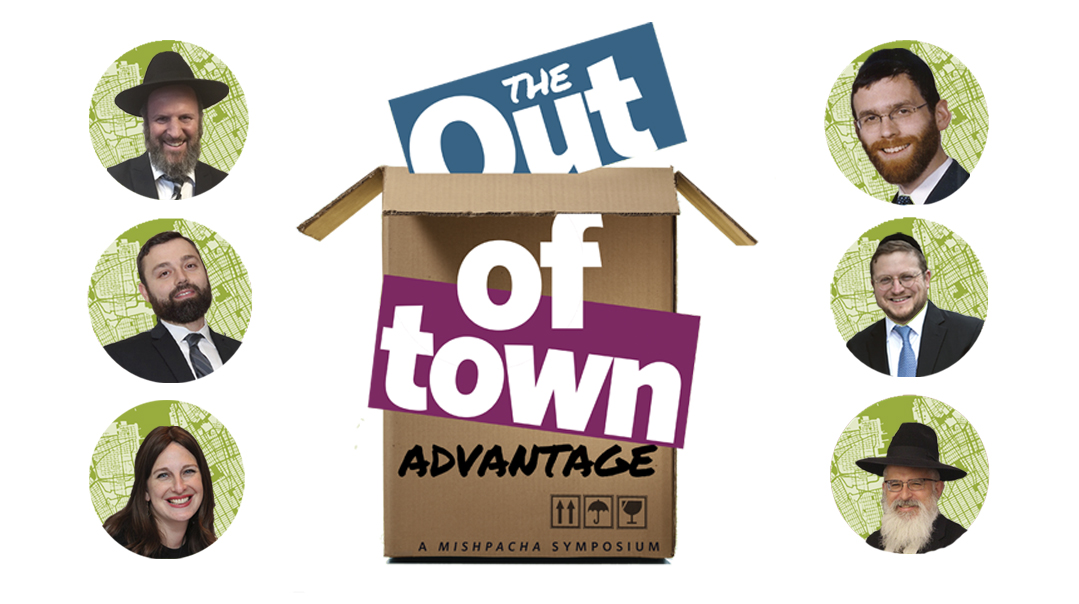
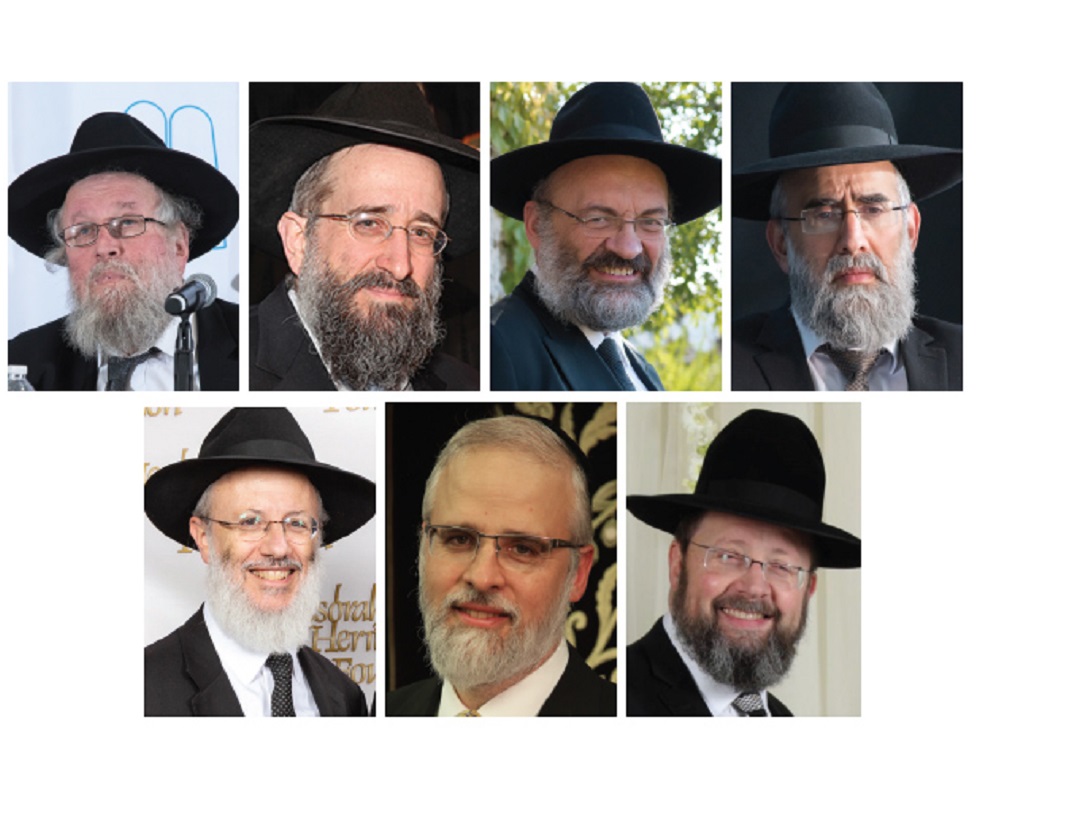
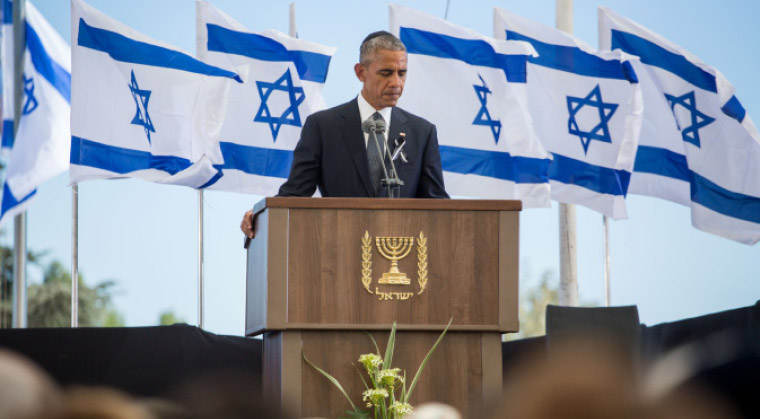
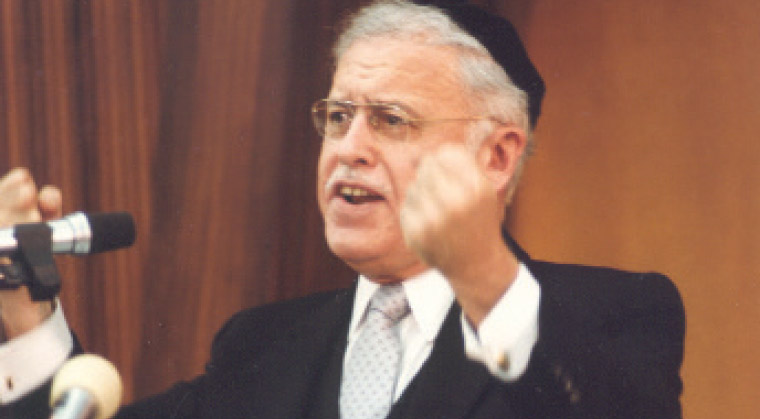
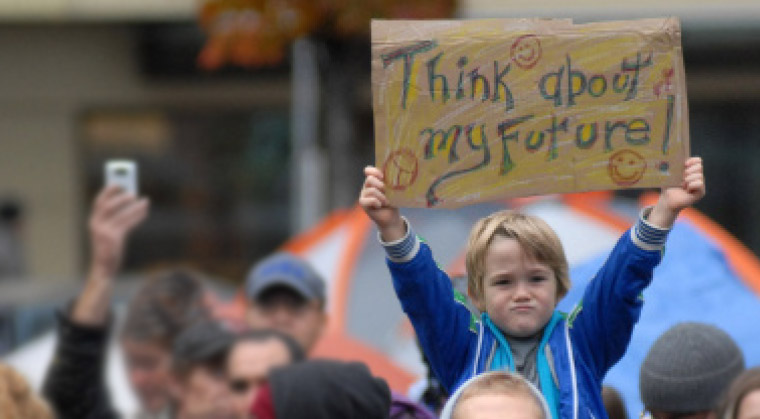
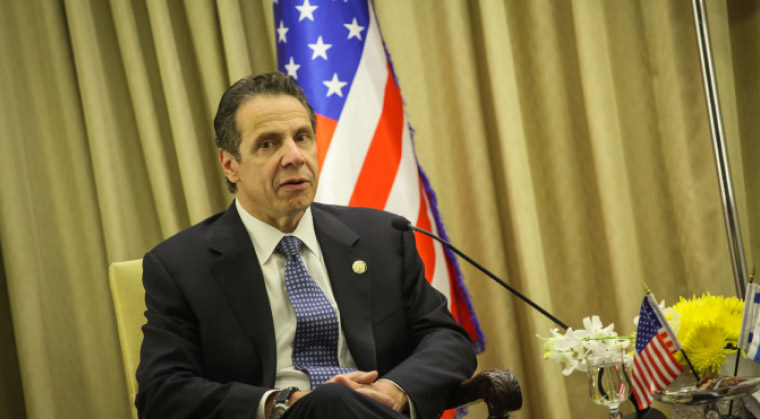

Comments (2)